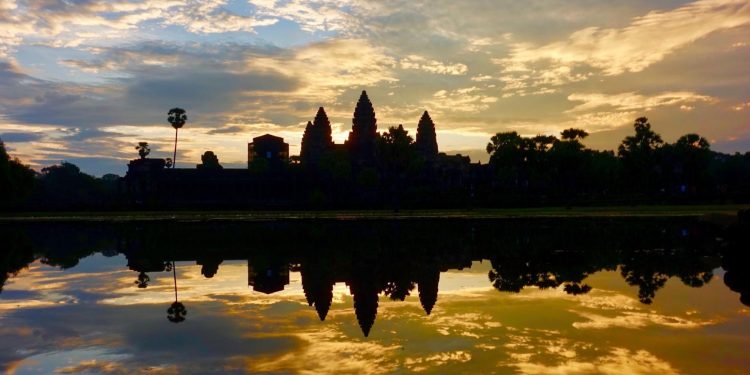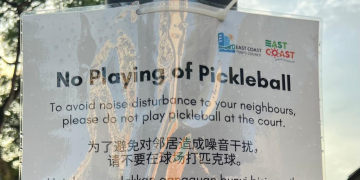Most travellers visit Siem Reap for one purpose, and one purpose only; and that is to visit the magnificent Angkor Wat. However, did you know that Angkor Wat is just one out of more than 50 temples in the entire Angkor complex?
Sprawling over 400 square kilometres, the Angkor Archaeological Park is an enchanting labyrinth of temples, each more intricate than the next. It’s easy to feel intimidated when planning a trip but for a start, here are some must-visit temples:
Angkor Wat
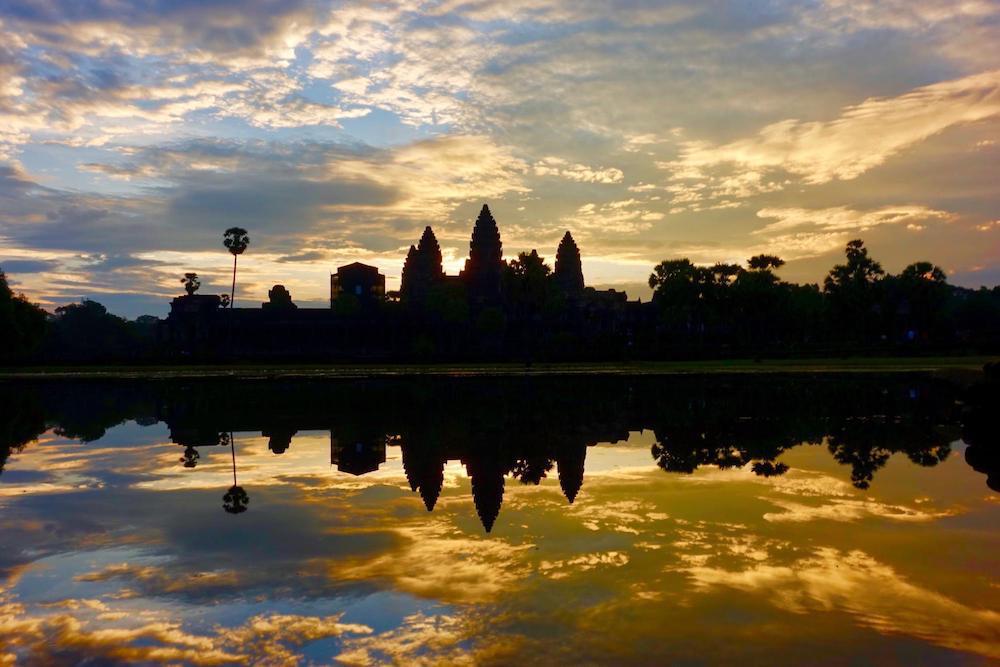
Angkor Wat is a temple of grandeur, and easily the most famous of the lot. Start your day early by heading to the small lake in front of Angkor Wat for a magnificent view of the sunrise, complete with a mesmerising reflection of the temple in the waters.
Angkor Wat is the world’s largest religious monument, and is even pictured on the country’s national flag. Built in the 12th century, Angkor Wat is a stone palace filled with bas-relief galleries, stone chambers, towers and courtyards — all of which are connected by a maze of staircases. Every visit to the temple is inexplicably laced with mystery and intrigue; choose to explore the temple by yourself or with a guide, who will regale you with tales about the history of the temple.
Ta Phrom
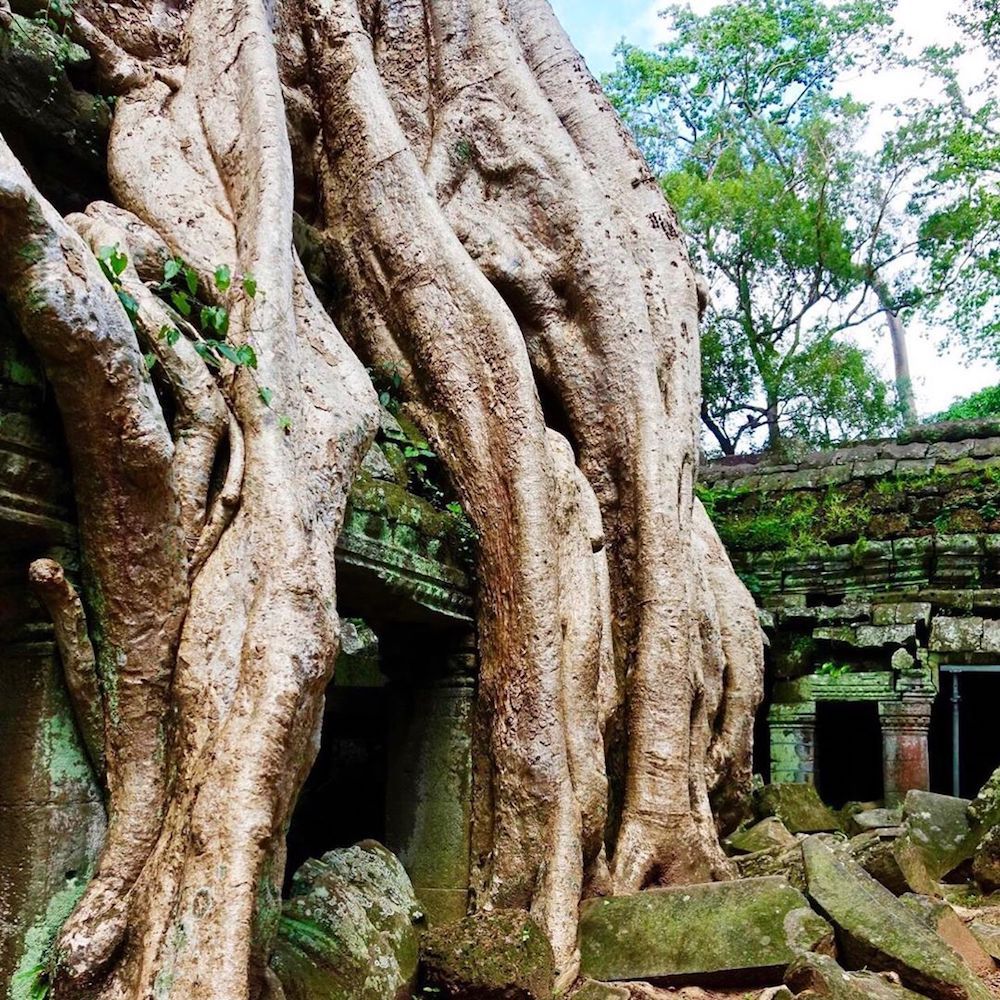
At first glance, the area of Ta Prohm seems to be a messy tangle of overgrown tree roots, vines and ferns. However, look closely and you’ll discover a temple swallowed by the forces of nature, where its ruins have trees growing out of its walls, and roots snaking across every available surface.
Exploring Ta Prohm feels like the start of an intrepid adventure; and rightly so, with the temple once acting as the filming location of the famous Hollywood movie, ‘Tomb Raider’. The temple dates back to the 12th and 13th centuries, where it fell into disarray after the fall of the Khmer Empire in the 15th century. There’s a curious symbiotic relationship between the temple and the trees — the trees are the very thing that caused the temple’s walls to collapse; yet, today they’re the only thing holding the ruins together!
Bayon
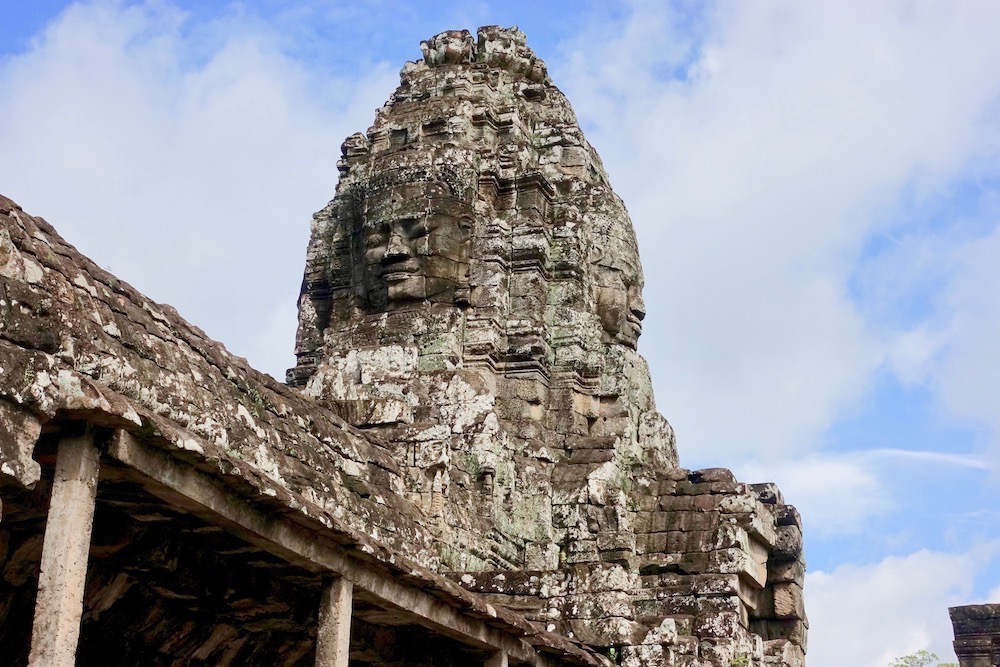
Known as the temple with many faces, Bayon boasts a total of 216 stone faces that depict the image of Avalokiteshvara, Cambodia’s most revered king. Each stone face measures a height of 4 metres, and faces a particular cardinal direction. They all have the same expression; with their eyes closed and mouth curved up in a serene smile — which is said to be symbolic of the achievement of inner peace or the state of Nirvana.
Built in the 12th and 13th centuries, Bayon is also decorated with multiple ornate bas-reliefs that can be found all around the temple. These illustrate everyday life back in 12th-century Cambodia, as well as the construction process of the temple.
Do note that a visitor pass is required to visit the Angkor complex. A 1-, 3- and 7-day pass costs USD37 (~SGD50), USD62 (~SGD83) and USD72 (~SGD97) respectively. All 3 of the above temples can be visited on the same day; either rent an e-bike to explore them at your own leisure or choose to hire a tuk-tuk driver, who will bring you to each temple and patiently wait as you explore.
If you have the time, you can also venture out of Siem Reap on a day trip to the Prasat Thom and Beng Melea temples.
Prasat Thom
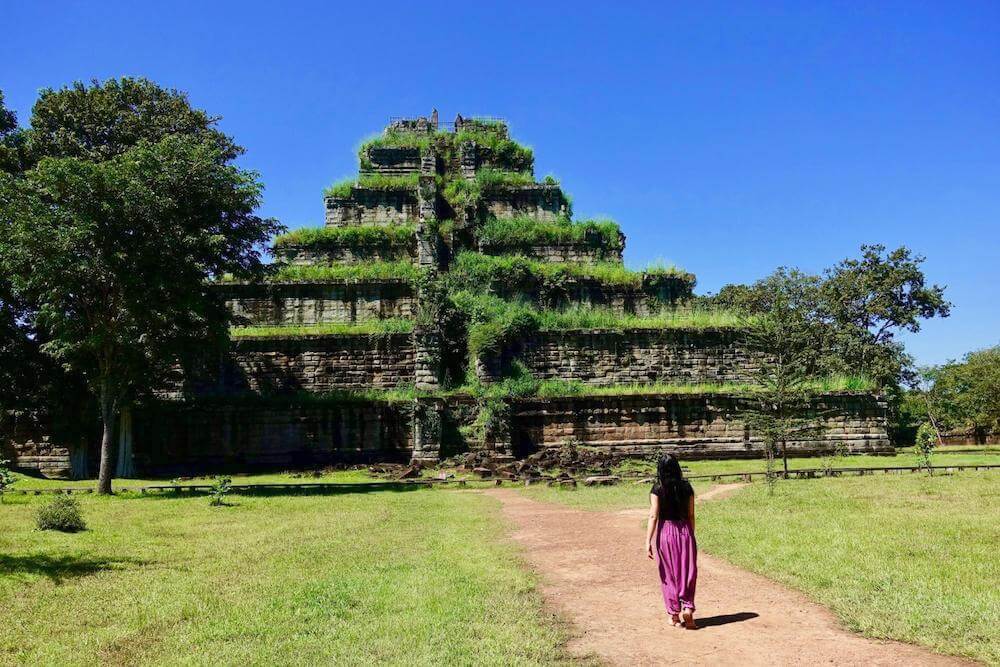
Prasat Thom is a sight to behold; boasting a formidable seven-storey pyramid that rises majestically out of the forest. The pyramid is found within the ancient city of Koh Ker, which previously functioned as the capital of the Khmer Empire between 928 and 944 AD. The area of Koh Ker is peppered with more than 180 sanctuaries and smaller temples, of which about 40 are open to the public today.
If you wish, you can even climb a narrow staircase to the top of Prasat Thom for a panoramic view of the area.
Beng Melea
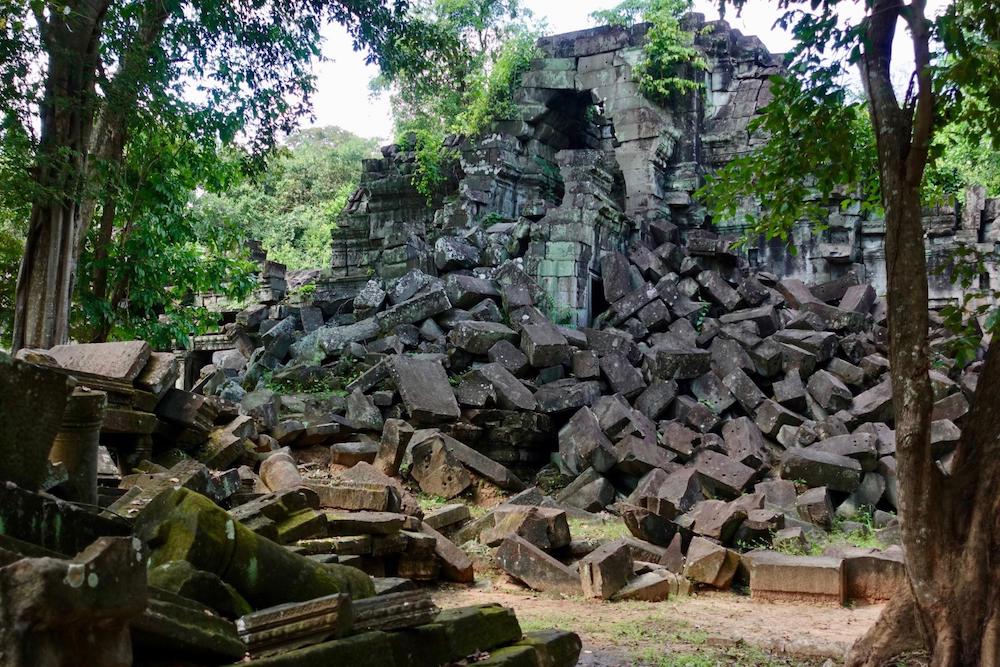
Known as the less-touristy sister of Ta Prohm in the Angkor complex, Beng Melea is perhaps one of nature’s best-kept secrets. Gloriously overrun by the forces of nature, Beng Melea is a 12th-century maze of dark chambers and hushed walkways.
Enclosed by a large moat, visitors should be prepared to clamber through narrow holes in the walls, scamper over giant pieces of sandstone, as well as skip over masses of roots and rubble. A wooden sidewalk is also available if you prefer, but where’s the fun in that?
A ticket is required for entry into both Prasat Thom and Beng Melea, which costs USD10 (~SGD13) and USD5 (~SGD7) respectively.
The trick to discovering the beauty of Siem Reap’s temples is just to take it slow. Wake up early for the sunrise at Angkor Wat, return to your hotel for a siesta or swim (Siem Reap can get very hot around mid-day!), and have a leisurely lunch before returning to explore the other temples.
Take your time to soak in the full splendour of the ruins — there’s really nothing like it!



